Slovenian ambassador: Serbia could end 2008 as EU candidate
Tuesday, 01.01.2008.
23:43

Slovenian ambassador: Serbia could end 2008 as EU candidate B92: What is Slovenia's position on the integration of Serbia into the EU? Luci: Slovenia's position on Serbia's European community integration has been known for a long time. Slovenia has an interest, a desire for Serbia to enter the European Union as soon as possible, since Serbia inside the European community means stability. Serbia is the key country in the Balkans and, incorporated in the EU, it will bring stability to this region, and the rest of Europe. In fact, geographically, Serbia is already in Europe, so that we need to make those other legal things happen to have it integrated. If we look at the people, they are thinking in a European manner, they accept European values and behave in a European way. If one takes a stroll down the streets of Belgrade, one believes one is in a European city, so I believe Serbia already has a European spirit. B92: How do you view the mood of the citizen toward the EU, especially in light of the recently adopted Kosovo resolution? Luci: I travel around Serbia a lot, not only in Belgrade. I socialize with people from different backgrounds, of different professions, and I think there is great a leaning toward entering the EU as soon as possible. If we look at other European countries that have already joined, there was more skepticism, but here, people already feel European, and the public opinion shows that a large number of citizens, especially young people, wish for Serbia to join the EU as soon as possible. B92: While on the other hand, Serbia is demanding that the EU respects its territorial integrity and sovereignty. Luci: This is certainly Serbia's desire, but I think these are two separate processes. The stabilization-association one, which has been adopted, is certainly important, but as you know, it does not apply to Kosovo, since, as you know, Kosovo is under international administration, therefore, it is a kind of a protectorate. But, it does not prejudice the future or current status of Kosovo, so this process is not to be mixed with your plan, action plan to enter the EU, which is real, which can come true. Therefore, these are two separate processes, but they do have a little influence on each other. B92: Slovenian Foreign Minister Dimitrij Rupel recently said the same, and that Serbia was to sign the SAA in January. How do you see future relations between Slovenia and Serbia in that context, considering that Ljubljana often tried to impose itself as a relevant factor in solving the Kosovo status issue, at the same time causing the ire of the Belgrade authorities? Luci: Certainly a desire exists to sign the Stabilization and Association Agreement with the 27 countries as early as January, since this would enhance Serbia entering the EU. As for Slovenia's position on the final status of Kosovo, Slovenia was never involved, at least the Slovenian government was never involved, this was solved by the Contact Group, and later on the Troika, therefore, Slovenia was never involved in this process so far. The Slovenian government, also never had a particular stance. There were some high-ranking politicians' statements, that really angered politicians and people in Serbia, but that was not a government position, those were their personal comments that have not had any particular role in the Slovenian government position. B92: Prime Minister Jansa even suggested to grant Serbia a candidate status. Do you think that such initiatives can be realized during Slovenia's EU presidency? Luci: President [sic] Jansa really is an optimist and his great desire is for Serbia to enter the EU as soon as possible, since that would then be a guarantee of some kind of stability in this part of Europe, and he's an optimist with regard to this, since he believes that if the Agreement is signed now, in January, that Serbia will make a speedy progress, and Serbia, as we know, has a very strong administrative-technical apparatus, that can do all that is necessary to attain candidate status quickly, and then to make a quick accession to the EU, which will mean a little more work. And precisely at this moment, when Serbia is making its accession, Slovenia, which has some experience, can offer assistance, if requested. And, I personally, just like the president, believe that this is a serious matter and that Serbia can, as soon as possible, faster than some other countries, reach candidate status. And let's be realistic, I believe this could be by the end of 2008, in other words, by the end of the French presidency, and then a couple of years of adjusting the legislation to that of Europe. B92: Serbia has a presidential election ahead. Tomislav Nikolic is considered one of the front-runners. Do you think that his victory could jeopardize Serbia's path toward the EU? Luci: I think it would not be good that if I, a foreign diplomat, discussed this. I think people in Serbia know who they will elect. There will be sufficient recognition of all the candidates' programs and Serbian citizens will make a good decision, and we will all see that it will be. I would not prejudice and comment anything, since that would be out of order. B92: Do you think that Kosovo's possible independence would threaten the region's stability? Luci: Certainly, some political decisions can destabilize the situation, in, so to speak, the south of Europe. That is not the main reason to do nothing anything and to keep things the way they were. I see that there's a lot of talk about the Kosovo status, about legal matters, but very little about the problems of the people who live there. Perhaps Kosovo and Metohija is not interesting as a place that people would inhabit, there is unemployment, problems with power supply, housing, scholarships. The more we talk about this, the more stable the region will be. B92: I've mentioned stability because Slovenia has invested big in Serbia, some estimates put the figure at EUR 2bn. Instability in the region would also jeopardize your investments, so it is interesting to learn why Slovenia at one point backed the Ahtisaari plan, which Belgrade saw as destabilizing for the region? Luci: At one time Slovenia backed this because there was no other outcome, as you know, the talks on Kosovo were not successful, so perhaps at that time the Ahtisaari plan seemed good for the Serb population in Kosovo, to protect your monasteries and your cultural heritage, which is great, and we were probably advocating Ahtisaari's plan because there was no other. As for the Kosovo status solution and investments, you know that culture and economy here come before political decisions, so I don't think there will be any big problems. Slovenian investments here are stable, people are getting jobs, many products are exported to the EU from here, or back to Slovenia, so that Slovenia with its investments helps Serbia export abroad. As for the trade, it has been balanced for some time now, while Vojvodina has a positive trend, in other words, more is exported to Slovenia from Vojvodina than the other way round, so that these things are improving each year. B92: Do you think there are monopolies in the Serbian market? Luci: I don't think this is a question for a diplomat, I am not qualified enough to comment on that. You certainly have institutions in Serbia that will check this, but one thing is obvious, there is too little competition. Competition, if monopolies do exist, obliterates them, therefore, the more competition in trade, production and services, the more rejected these monopolies, if they exist, will become. B92: Thank you for your time and happy holidays! Luci: Thank you, and I wish you and your viewers pleasant holidays and all the best, lots of health, happiness and love this year. Slovenian ambassador to Serbia Miroslav Luci was a guest on a B92 news program, on the day his country assumed the rotating European Union presidency, to talk about Serbia's EU future, Kosovo, and economic ties between Ljubljana and Belgrade. Guest: Miroslav Luci Journalist: Ivana Konstantinovic "Slovenia has an interest, a desire for Serbia to enter the European Union as soon as possible, since Serbia inside the European community means stability."
Slovenian ambassador: Serbia could end 2008 as EU candidate
B92: What is Slovenia's position on the integration of Serbia into the EU?Luci: Slovenia's position on Serbia's European community integration has been known for a long time. Slovenia has an interest, a desire for Serbia to enter the European Union as soon as possible, since Serbia inside the European community means stability. Serbia is the key country in the Balkans and, incorporated in the EU, it will bring stability to this region, and the rest of Europe.
In fact, geographically, Serbia is already in Europe, so that we need to make those other legal things happen to have it integrated. If we look at the people, they are thinking in a European manner, they accept European values and behave in a European way. If one takes a stroll down the streets of Belgrade, one believes one is in a European city, so I believe Serbia already has a European spirit.
B92: How do you view the mood of the citizen toward the EU, especially in light of the recently adopted Kosovo resolution?
Luci: I travel around Serbia a lot, not only in Belgrade. I socialize with people from different backgrounds, of different professions, and I think there is great a leaning toward entering the EU as soon as possible. If we look at other European countries that have already joined, there was more skepticism, but here, people already feel European, and the public opinion shows that a large number of citizens, especially young people, wish for Serbia to join the EU as soon as possible.
B92: While on the other hand, Serbia is demanding that the EU respects its territorial integrity and sovereignty.
Luci: This is certainly Serbia's desire, but I think these are two separate processes. The stabilization-association one, which has been adopted, is certainly important, but as you know, it does not apply to Kosovo, since, as you know, Kosovo is under international administration, therefore, it is a kind of a protectorate. But, it does not prejudice the future or current status of Kosovo, so this process is not to be mixed with your plan, action plan to enter the EU, which is real, which can come true.
Therefore, these are two separate processes, but they do have a little influence on each other.
B92: Slovenian Foreign Minister Dimitrij Rupel recently said the same, and that Serbia was to sign the SAA in January. How do you see future relations between Slovenia and Serbia in that context, considering that Ljubljana often tried to impose itself as a relevant factor in solving the Kosovo status issue, at the same time causing the ire of the Belgrade authorities?
Luci: Certainly a desire exists to sign the Stabilization and Association Agreement with the 27 countries as early as January, since this would enhance Serbia entering the EU. As for Slovenia's position on the final status of Kosovo, Slovenia was never involved, at least the Slovenian government was never involved, this was solved by the Contact Group, and later on the Troika, therefore, Slovenia was never involved in this process so far. The Slovenian government, also never had a particular stance.
There were some high-ranking politicians' statements, that really angered politicians and people in Serbia, but that was not a government position, those were their personal comments that have not had any particular role in the Slovenian government position.
B92: Prime Minister Janša even suggested to grant Serbia a candidate status. Do you think that such initiatives can be realized during Slovenia's EU presidency?
Luci: President [sic] Janša really is an optimist and his great desire is for Serbia to enter the EU as soon as possible, since that would then be a guarantee of some kind of stability in this part of Europe, and he's an optimist with regard to this, since he believes that if the Agreement is signed now, in January, that Serbia will make a speedy progress, and Serbia, as we know, has a very strong administrative-technical apparatus, that can do all that is necessary to attain candidate status quickly, and then to make a quick accession to the EU, which will mean a little more work.
And precisely at this moment, when Serbia is making its accession, Slovenia, which has some experience, can offer assistance, if requested. And, I personally, just like the president, believe that this is a serious matter and that Serbia can, as soon as possible, faster than some other countries, reach candidate status. And let's be realistic, I believe this could be by the end of 2008, in other words, by the end of the French presidency, and then a couple of years of adjusting the legislation to that of Europe.
B92: Serbia has a presidential election ahead. Tomislav Nikolić is considered one of the front-runners. Do you think that his victory could jeopardize Serbia's path toward the EU?
Luci: I think it would not be good that if I, a foreign diplomat, discussed this. I think people in Serbia know who they will elect. There will be sufficient recognition of all the candidates' programs and Serbian citizens will make a good decision, and we will all see that it will be. I would not prejudice and comment anything, since that would be out of order.
B92: Do you think that Kosovo's possible independence would threaten the region's stability?
Luci: Certainly, some political decisions can destabilize the situation, in, so to speak, the south of Europe. That is not the main reason to do nothing anything and to keep things the way they were. I see that there's a lot of talk about the Kosovo status, about legal matters, but very little about the problems of the people who live there. Perhaps Kosovo and Metohija is not interesting as a place that people would inhabit, there is unemployment, problems with power supply, housing, scholarships. The more we talk about this, the more stable the region will be.
B92: I've mentioned stability because Slovenia has invested big in Serbia, some estimates put the figure at EUR 2bn. Instability in the region would also jeopardize your investments, so it is interesting to learn why Slovenia at one point backed the Ahtisaari plan, which Belgrade saw as destabilizing for the region?
Luci: At one time Slovenia backed this because there was no other outcome, as you know, the talks on Kosovo were not successful, so perhaps at that time the Ahtisaari plan seemed good for the Serb population in Kosovo, to protect your monasteries and your cultural heritage, which is great, and we were probably advocating Ahtisaari's plan because there was no other.
As for the Kosovo status solution and investments, you know that culture and economy here come before political decisions, so I don't think there will be any big problems. Slovenian investments here are stable, people are getting jobs, many products are exported to the EU from here, or back to Slovenia, so that Slovenia with its investments helps Serbia export abroad.
As for the trade, it has been balanced for some time now, while Vojvodina has a positive trend, in other words, more is exported to Slovenia from Vojvodina than the other way round, so that these things are improving each year.
B92: Do you think there are monopolies in the Serbian market?
Luci: I don't think this is a question for a diplomat, I am not qualified enough to comment on that. You certainly have institutions in Serbia that will check this, but one thing is obvious, there is too little competition. Competition, if monopolies do exist, obliterates them, therefore, the more competition in trade, production and services, the more rejected these monopolies, if they exist, will become.
B92: Thank you for your time and happy holidays!
Luci: Thank you, and I wish you and your viewers pleasant holidays and all the best, lots of health, happiness and love this year.










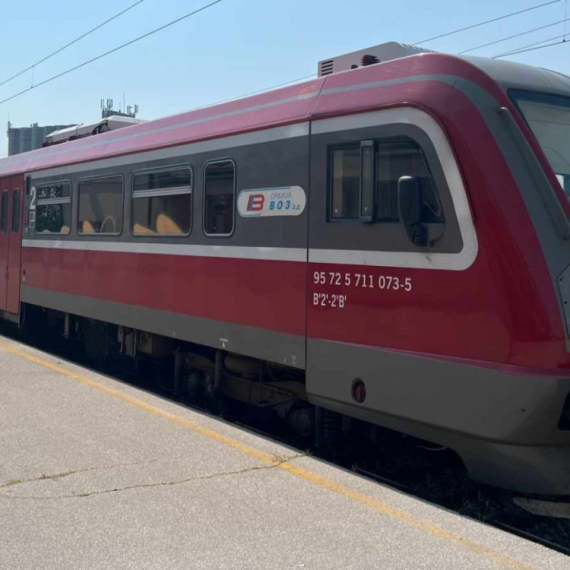



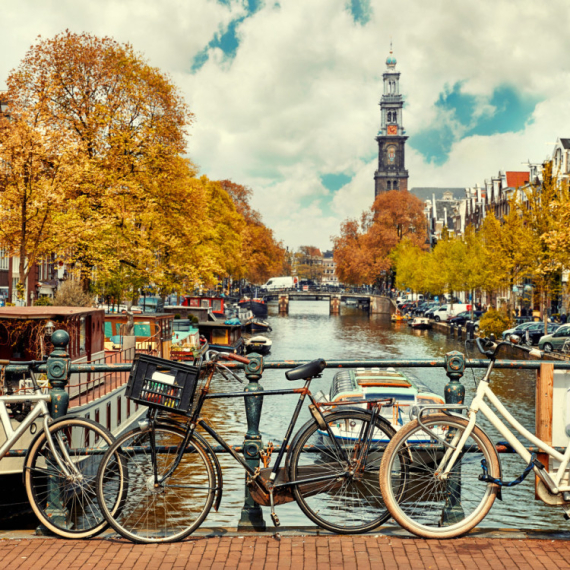

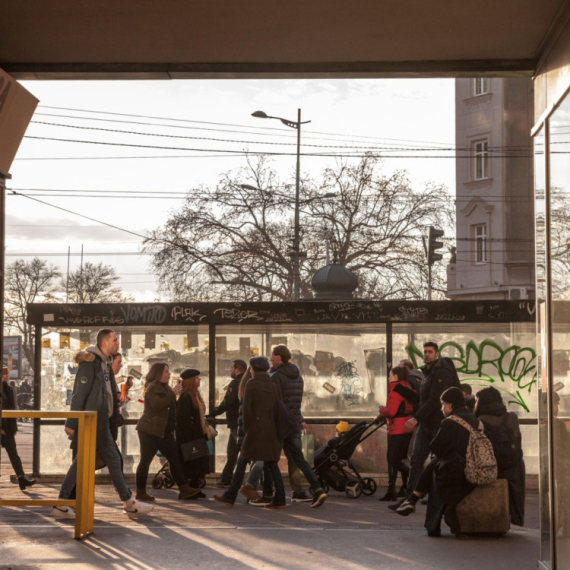
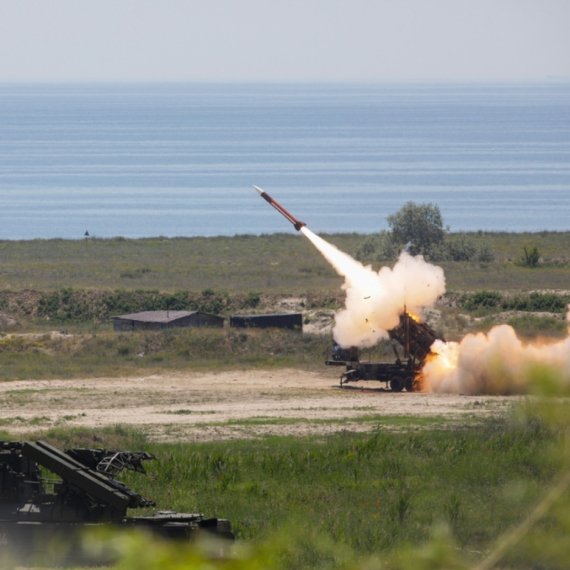
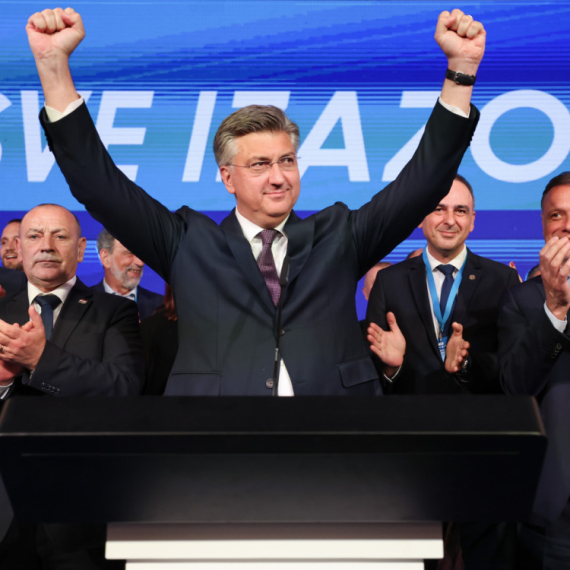
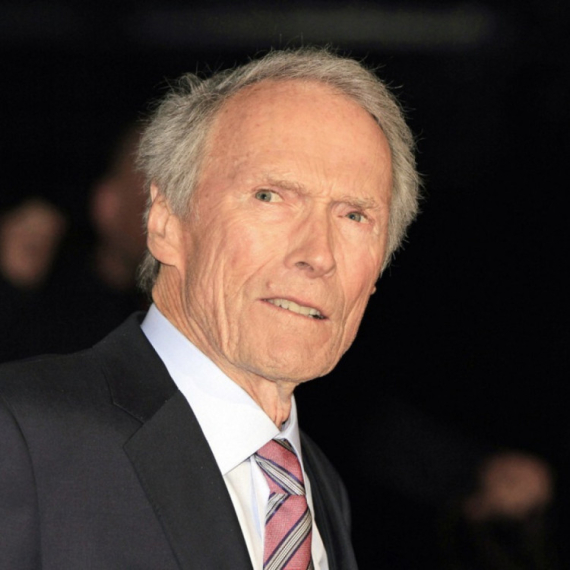
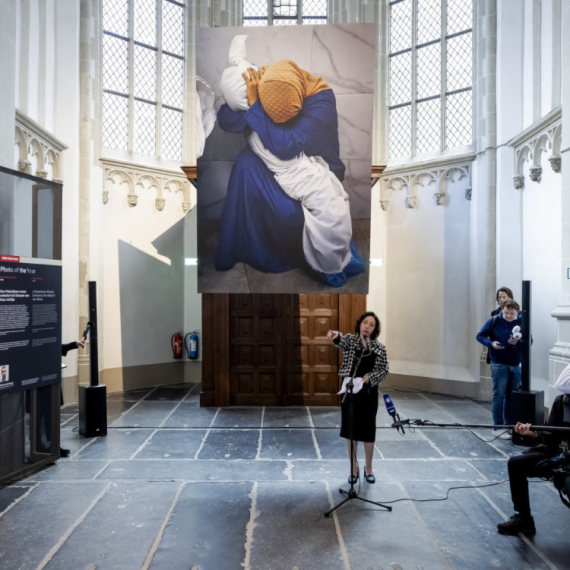
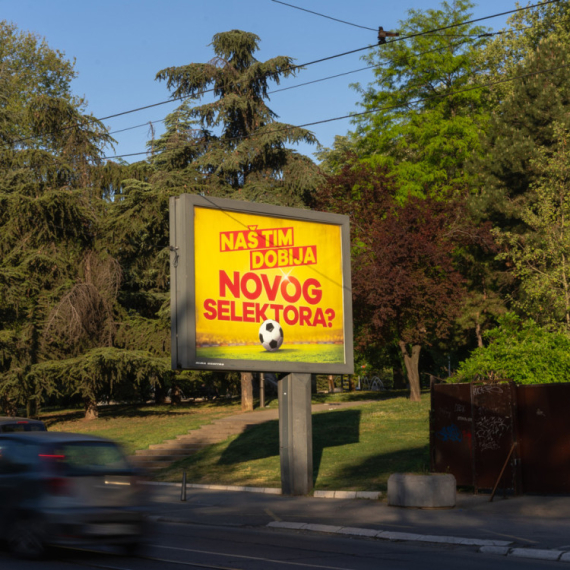
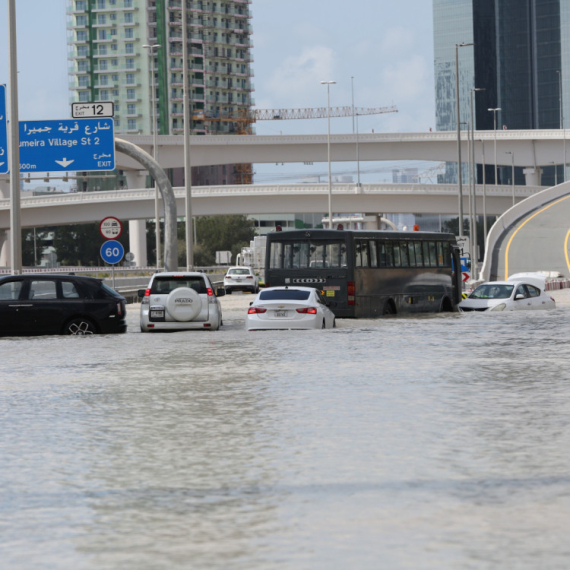



















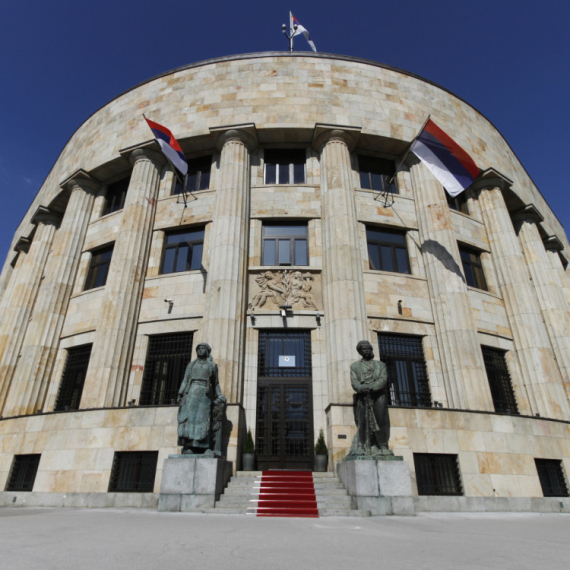


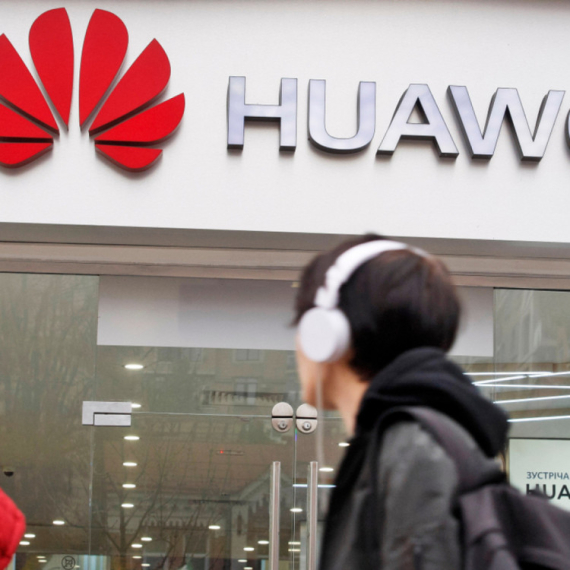



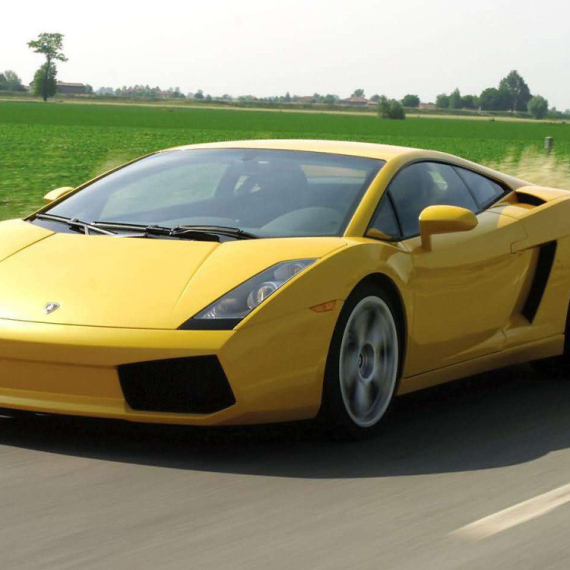
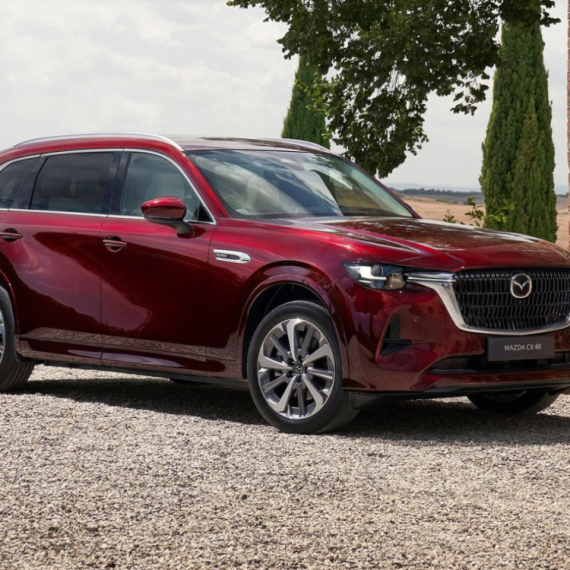
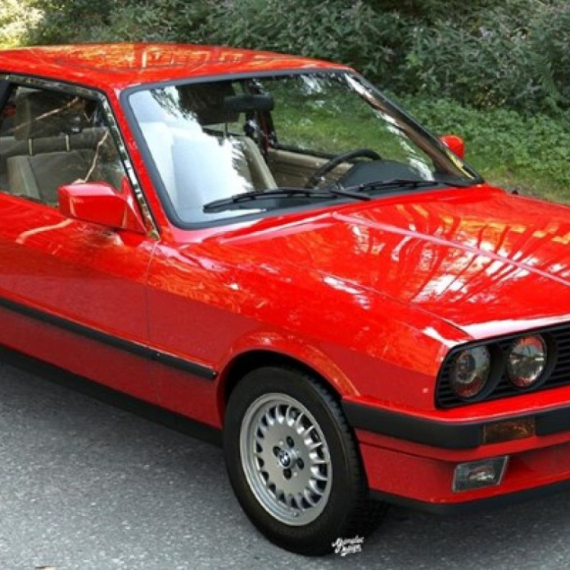
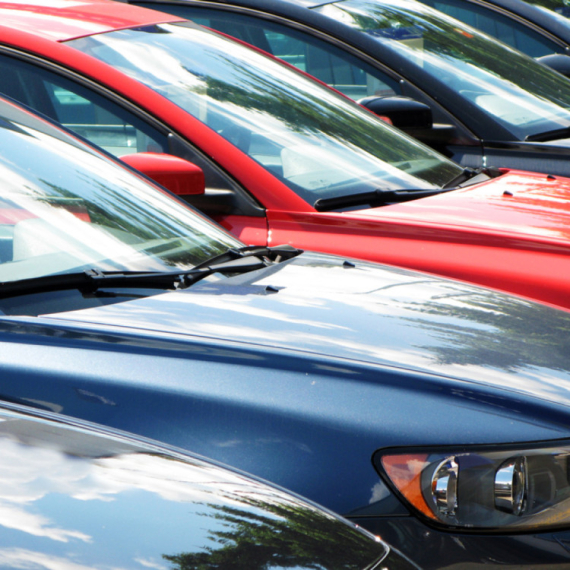




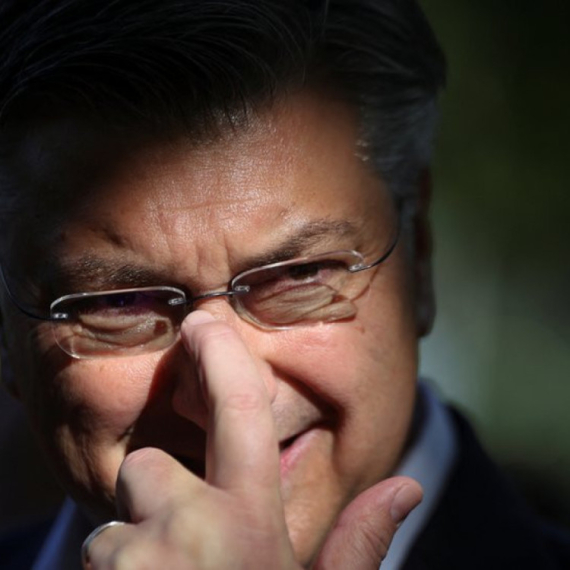
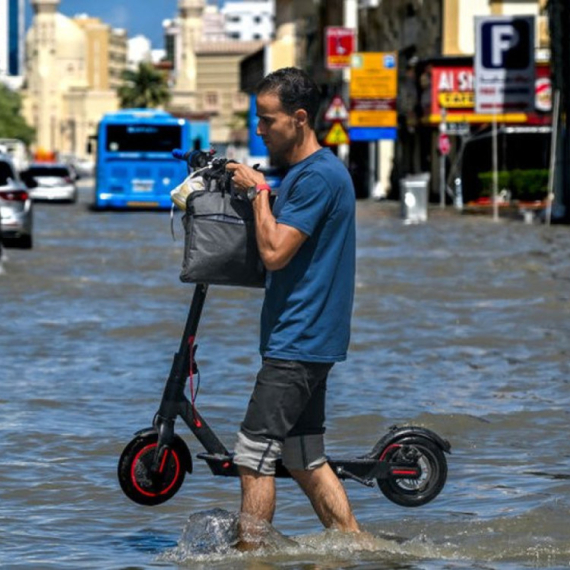

Komentari 3
Pogledaj komentare